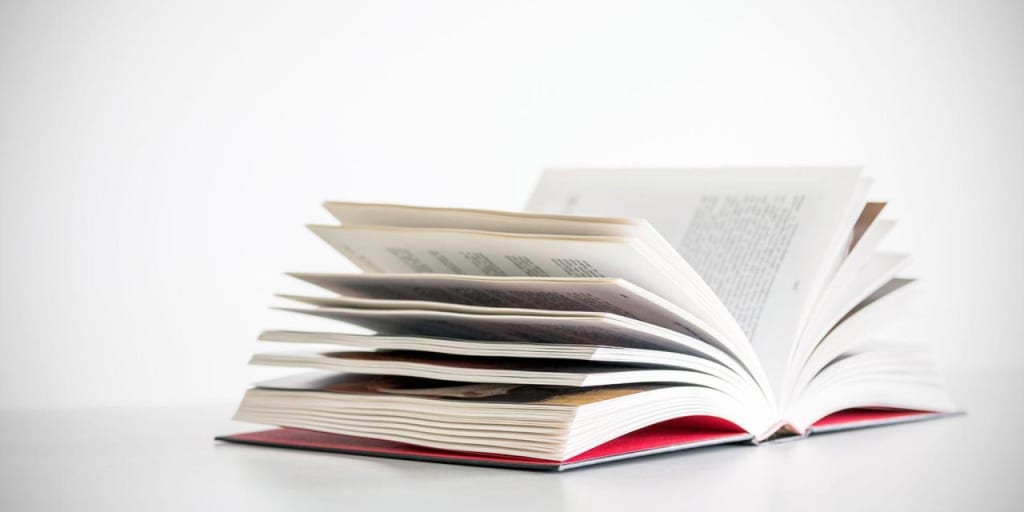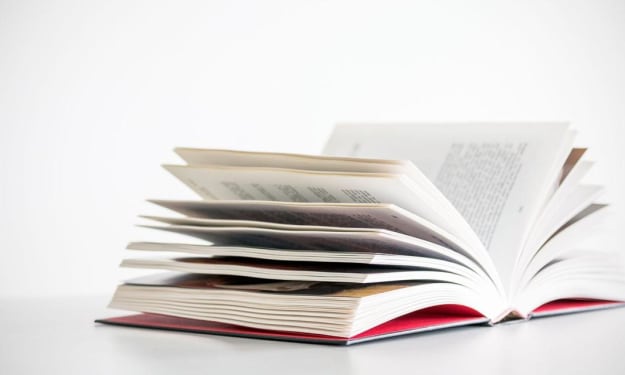How (Not) to Write: A Y.A. Romance, Part I
One Writer's Opinion

Young Adult literature is probably one of the most popular genres nowadays from what I've seen, and it has been for the past few years, perhaps even longer. I think the buzz started with Twilight, and even though it's had its ups and downs, the high that book brought has stayed and only gotten more and more pronounced over time. A lot of this has to do with movies and shows being created based around popular Y.A. books, but I think the books are the things people enjoy the most. I would say the same case works for me, since I tend to be one of those people who believes that 'the book is better,' simply because books tend to have more to them, and movie representations can be, well, hit-or-miss.
As far as Y.A. novels go, I think that statement kind of fits for my opinion on them as a whole: they're hit-or-miss. There are many reasons for why, some of which would take up more than one blog post if I really sat down to write (read: yak endlessly) about them, but for the time being, I think I would rather focus on the biggest issues I have when it comes to nearly every Y.A. novel/series I've read.
I'll start with perhaps the largest problem: the romance.
I am not typically a fan of romance. No, it's not because I happen to be a guy (though don't get me started on romcoms, because those are an entirely different beast to deal with), it's just that, most of the time, I feel like romances in books or movies or TV shows tend to be a bit unrealistic. I know that can sometimes be the point, but I just have a hard time accepting the romantic pairing, especially since I often have a problem with either a) the characters, b) the foundation of the romance, c) the build up of the romance, or d) all of the above. And I think those reasons play a big role in why I have such a disdain for Y.A. romances, because so many of them happen to share the same base problems from my perspective.
Let's start with an example: Twilight.
It is no secret that, years ago, the Twilight series by Stephenie Meyer was a huge hit, especially with its female fanbase. Now when it was first released, I didn't read it. I don't think I had even heard of the book, and as a guy in his late teens at the time, I very obviously wasn't the intended audience. Bearing that in mind, I wound up reading the book after I saw the film version - and though it was okay at best, it piqued my interest, so after watching the second movie, I gave the books a shot
My first read through, I just sort of read them to get through them. I wasn't really thinking, wasn't really analyzing anything, I just read them. Now, I formed opinions while I read, that much I can say without doubt - I didn't care much for Bella, I failed to see the hype with Edward or Jacob, and if anything, I really only liked Alice and Leah, two side characters rather than the mains. But then, something happened. After I finished, I stumbled onto a forum online dedicated to people who hated Twilight, and I read numerous posts by numerous people as they talked about why they disliked it so much. One of the biggest criticisms thrown at the books? The portrayal of the relationship between protagonist Bella and the two main love interests, Edward and Jacob, but especially Edward.
Now, when I had watched the first movie, I confess that I didn't care much for Edward's mannerisms of stalking Bella and breaking into her room. I found both to be a little creepy, but the movie kind of downplayed both events, so I forgot about them rather easily. Reading the books, however, those mannerisms were... a bit more pronounced, and I think they were one of the main factors in why I didn't care much for Edward. But then, having seen these opinions and views, I decided to re-read the books, starting with the first one. Suffice to say, I started to realize that these anonymous people weren't far off from their opinions on the romance.
They opened my eyes to the reality of the utter nightmare that was Bella and Edward's 'love' story, a love story founded on little to no interactions, physical attraction, and zero chemistry - and that isn't even taking into account the negative, potentially dangerous actions from both characters.
To start with, we have Edward.
On the surface, Edward Cullen is supposed to be a wealthy, handsome, immortal vampire, forever trapped in the body of a seventeen year old. He's fast, he's smart, skilled at playing piano, but he's also very tormented and broody about his nature. Those are the qualities that Meyer paints for us as readers; he's meant to be dangerous, yet charming and mysterious, the kind of bad boy that someone like Bella believes she canchange, because deep down, she can see the good in him and only she can bring it out. The problem is, when you really read it, it's a lot easier to realize that this isn't at all what we get when it comes to Edward. Not even close.
Edward Cullen acts like he despises being a vampire, but that does nothing to curb his disdain and arrogance when it comes to humans. He casually sifts through their minds without a hint of consideration for how they think or feel, and does little to actively hide his superiority from anyone - whether it be using his power to stalk a girl to a different town or breaking into said girl's room to watch her sleep simply because he can. . This is the real Edward Cullen, the boy the readers are meant to either accept or pine for themselves in place of Bella. This, a character who carries himself with utter pomposity, who belittles those he dislikes, who has both the power and the urge to murder teenagers without a shred of consideration, but only stops himself because his vampire father would be disappointed. Not because it's wrong or a horrendous thing to think about, but because he doesn't want his daddy to be mad. But this still isn't scratching the surface, nor is it my focus. No, my focus is truly centered around the fact that Edward is an abhorrent love interest, and yet we as the reader are meant to think the opposite.
Not only this, but Midnight Sun shows that he hates that he can't read her mind the way he can everyone else, to the point where he becomes obsessed with trying to find out what she's thinking; she cannot have any thoughts of her own. He forces his family to leave when she gets injured primarily due to his own carelessness in New Moon, he forbids her from seeing her friend and goes out of his way to both destroy her truck and bribe his siblings to keep her away, then gets enraged when she goes against his wishes in Eclipse, and in Breaking Dawn, he decides he's going to kill the child growing inside of her whether she likes it or not - at first. Yet, we're either meant to turn a blind eye to them or forgive them, either because they are romanticized - the stalking - or because he claims he's doing it because he loves her that much - the controlling. If he was a real person, people would be slapping restraining orders on him and he would probably get arrested and thrown in jail.
If I was to take these qualities by themselves, I would say that Edward is a horrid character and leave it at that. This would be true (for me), but, then it wouldn't really explain why the romance itself is so bad.
What makes the romance terrible can be broken into two reasons: the first is that Bella either forgives or ignores the horrendous things Edward does on a regular basis. Half the time, she acts flattered or finds excuses to make that pardon him, even though on other occasions, she'll demonize someone else for doing or saying something similar. This includes his racism towards Jacob and the werewolves - she'll give Jacob a hard time if he insults the vampires, but Edward can do it and she won't bat an eye - or she'll barely protest whenever he tries to control her in some way, but the second her father makes an attempt to be a father, she throws a hissy fit and does whatever she can to belittle and go against his wishes. These are but two examples, and they really don't paint Bella in the best light, and that's not even going into her own terrible qualities as a character.
The other reason isn't quite as serious, yet it's still just as important to the discussion at hand: their romance isn't even really a romance. These two hardly know each other. They have very few conversations, most of which are brief and/or stilted, and yet, after Edward saves her life and they bicker about the how and why, they somehow end up falling in love. There is no chemistry. There is no connection. They know little to nothing about each other and have one very awkward kind-of-sort-of date, but we as the readers are supposed to see their relationship blossoming as if they've gone on hundreds of dates.
Nothing about their relationship is natural. Bella is drawn to Edward primarily because he's hot, and she begins to obsess over him, first because he's mean to her, and then because he saves her life and she miraculously is the only one who saw him move at superhuman speed doing so. She wants to crack the 'mystery' that is Edward Cullen. And Edward primarily knows that he can't read her mind and that she smells supremely appetizing, and... that's it. He has even less to go off for his interest in her, and this never changes for either of them.
They never have a date where they relax and smile and just get to know one another. They never ask each other questions about their tastes in movies or what their hobbies are. We get a single scene of them realizing they like the same song, and that is ultimately it. Most of the time outside of that is them sniping at each other, or Edward trying to tell her he's dangerous and ignoring his own statements.
My point is their romance does not feel real or genuine. It feels fake, forced, and is very clearly being rushed because Meyer really wants to focus on the romance. Yet for some reason, she forgot to make it so that the romance was a real romance. Neither character has any true interest or knowledge in the other beyond surface details, and they never bother to go beyond those . We're led to believe that they just sort of fell in love, and from there, we're supposed to see their love as true and amazing and just so powerful. But, I can't believe it. I don't see it, I don't feel it, and instead of love, I just see a horrible relationship centered around abuse and obsession. And while it may be that I am simply the wrong audience, the problem is that other Y.A. novels have followed in Twilight's steps when it comes to their romances and especially their romantic leads.
We have Ethan Wate from Kami Garcia and Margaret Stohl's Beautiful Creatures, a male lead who constantly insults his depressed father, belittles and mocks everyone around him - including his best friend - and has a very strong judgmental streak, particularly towards girls, falling for a girl he never gets to know on a personal level, a girl he obsesses over because he has dreams about her and that's about it. She ends up no better, because despite being the supernatural being of the two, she does nothing for herself - thus, he is the one doing everything plot-related - and rolls over whenever he demands she take part in whatever it is he wants. We're not supposed to think these things about them, however. No, Ethan is meant to be likable and a good protagonist, the kind of guy a girl should want instead of someone like Edward. He's not a 'bad boy,' but a 'good old boy,' despite his callous disregard for anyone that isn't him and his fondness for sticking his nose where it doesn't belong. Lena, the love interest, isn't given the same kind of attention and detail, and instead serves mostly as a toy for Ethan to play around with. She gets very little personality and even less time to shine outside of a few very rare occasions.
How do they 'fall in love,' you may ask? Out of nowhere, after very little bonding despite the two of them being together rather frequently, and more of it seems to be based on the fact that their ancestors fell in love then it is them actually falling in love. We see no development of them as characters, either alone or as a couple, and instead we're just suddenly supposed to believe they have feelings for each other with little fanfare.
Or, there's Becca Fitzpatrick's Hush, Hush, wherein protagonist Nora's love interest is the fallen angel Patch. He's meant to be the love interest, but in truth, he is a sadistic, twisted being who delights in using his powers to manipulate people left and right, especially Nora herself. He torments her repeatedly with hallucinations and makes it clear early on that he likes vulnerable women - while making it obvious who he's referring to. And he also terrorizes Nora with the idea that he wants to murder her, while also mind-raping people for his own enjoyment. Yet we are supposed to swoon over him, never mind the obvious terror and stress that he gives Nora. No, he's the love interest, he's excused from the abhorrent behavior because in the end, he 'loves' Nora. And how do they fall in love, pray tell? When Patch manipulates events so that they wind up at a motel together, during which time, he pins her to a bed and tells her to her face he's going to kill her and there's nothing she can do to stop him, laughing in her face at her obvious terror. He makes Edward Cullen look like the poster boy for a neighborhood watch, which takes a lot - and I mean a lot - to pull off.
These are only a handful of examples, but these are the characters we are meant to like, to root for, with relationships we're supposed to support. But they are the furthest thing from that in every way imaginable, and instead, the romance we're supposed to see as real winds up being destructive, chaotic, and downright disgusting on a number of levels, and from this, people who read - especially the younger, more impressionable ones - read these romances and start to believe that this is the thing they need, that they should find a boyfriend like Patch or Edward or Jace or Ethan, male characters who are horrid, disgusting beings with bad qualities that vastly outweigh any potential good that may exist. And while it may not have the same effect for boys, there's always the chance that boys would read these males and think that, 'hey, maybe if I acted more like him, girls would like me,' which is a whole other can of worms.
Suffice to say, there are a lot of problems when it comes to Y.A. romance, both in the execution and especially with the romantic leads (and the protagonists, too). I'm no expert, but I feel I've gained a lot of experience and exposure from reading a lot of Y.A. stories with romance in them, and from reading and analyzing the various reviews, opinions, and beliefs of people who felt similarly or differently than I do. Taking all that to heart, I believe I have a way to fix the problems present in Y.A. novels when it comes to their poorly-done romances. With this advice, I hope to at least help writers such as myself be aware of how to avoid these pitfalls, since we don't need any more Edwards or Jaces or Ethans in the Y.A. world, or the literary world in general.
Stay tuned for the second part, where I go into depth on how to best avoid writing the wrong kind of Y.A. romance.
About the Creator
D.A. Baldwin
I am currently a student at a university, trying to find my way in life, while also trying to write a book. Lots of ideas bouncing in my head for potential articles, so we'll see how that goes. Cheers!







Comments
There are no comments for this story
Be the first to respond and start the conversation.